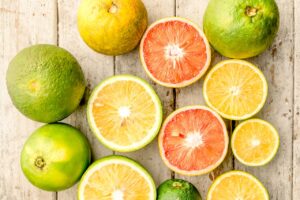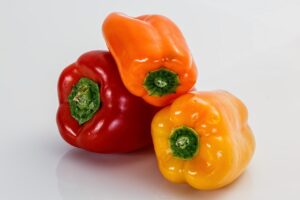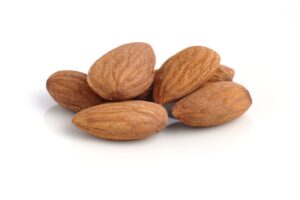Boost Your Immunity

With the current situation we are all living in people are seeking ways to boost their immune systems. The immune system consists of several parts which can be strengthened to run more efficiently in order to fight off diseases.
Lifestyle
The immune system can be strengthened by taking in to consideration your lifestyle, general nutrition, foods that boost the immune system and supplements.
The foundation for a strong immune system is a healthy lifestyle which must include:
- Regular Exercise. Regular, moderate exercise (such as brisk walking, steady cycling, jogging, swimming, and hiking) may reduce inflammation and help the immune cells regenerate regularly. Aim for at least 20 minutes daily.
- A healthy, balanced diet high in fruits and vegetables. This is described in more detail below.
- Maintain a healthy weight – a BMI of 25 or less.
- Sufficient sleep.Studies have shown that people who sleep less than 6 hours each night are more likely to catch a cold than those who sleep 6 hours or more. Aim for at least 7 hours daily.
- Reduce Stress. Long term emotional stress may adversely affect immune health. It is therefore important to reduce stress levels through regular exercise, going outside, meditation, yoga, socialising, and hobbies in order to ensure that the immune system is functioning properly.
- Reduce alcohol consumption and stop smoking
Nutrition
In order to boost your immune system and keep it healthy, the general guidelines for nutrition are as follows:
1. Eat more whole plant foods
Whole plant foods such as fruits, vegetables, nuts, seeds, and legumes contain antioxidants, fibre, and vitamin C. All of these may reduce your susceptibility to illness.
2. Eat more healthy fats
Healthy fats, such as omega-3s (found in salmon) and olive oil, have strong anti-inflammatory properties which boost the body’s immune response. This can naturally prevent disease because chronic inflammation suppresses the immune system.
3. Eat more fermented foods or take a probiotic supplement
Fermented foods such as yoghurt and kefir, are rich in probiotics. These are the beneficial bacteria which populate the digestive tract and which aid the immune response. Studies have shown that children who drink 70ml of fermented milk daily have approx. 20% fewer childhood infectious diseases, compared with a control group.
If you do not regularly eat fermented foods then probiotic supplements should be taken.
4. Reduce intake of sugars
Excessive consumption of sugar can significantly contribute to obesity, type 2 diabetes and heart disease, all of which can suppress the immune system. Lowering sugar intake may decrease inflammation and the reduce risk of these conditions.
5. Stay hydrated
Staying hydrated ensures that all cells are functioning at their optimum level which in turn ensures that the immune system is functioning properly.
Foods Which Give Your Immune System a Boost
The foods which can give the immune system a boost include the following:
1. Fruit
a. Citrus Fruits

Vitamin C helps you fight a cold and it can actually help reduce the duration of a cold. This is because Vitamin C strengthens the immune system as it increases the production of white blood cells, which are vital for fighting infections.
Citrus fruits which are high in vitamin C include oranges, grapefruits, tangerines, clementines and lemons. Vitamin C is water soluble. This means that excess is excreted in the urine as the body cannot store it. Vitamin C should therefore be taken daily in a balanced diet.
b. Kiwis
Kiwis are very rich in vitamin C which stimulates the production of white blood cells thus increasing the capacity of the immune system to fight infections.
2. Vegetables
a. Red Bell Peppers

Red bell peppers contain almost 3 times as much vitamin C as an orange and are also a rich source of the powerful antioxidant beta carotene. This is converted by the body into vitamin A. These ingredients boost the ability of the immune system to fight infections.
b. Spinach
Spinach has a high concentration of antioxidants (including betacorotene) and is also rich in vitamin C. These ingredients boost the infection-fighting ability of the immune system. Similar to broccoli, cook spinach as little as possible in order to retain its nutrients.
Spinach is also a very good source of zinc, dietary fibre, phosphorus, vitamin B1 and choline. It contains a unique and beneficial mixture of phytonutrients, as well as antioxidants, flavonoids and carotenoids. Spinach also contains high levels of vitamin E which is important in regulating and maintaining the function of the immune system. Other foods with high levels of vitamin E include dark leafy greens and avocados.
c. Brocolli
Brocolli is one of the healthiest vegetables as it is packed with vitamins and minerals. It contains several antioxidants as well as vitamins A, C, and E, as well as fibre. If broccoli is overcooked it loses its nutrients, therefore it should be cooked as little as possible. In fact it can be eaten raw.
d. Garlic
Garlic boosts the immune system because it has a high concentration of sulphur-containing compounds, such as allicin.
e. Ginger
Ginger is commonly used in travel sickness remedies (as it reduces nausea) and in sore throat remedies (as it helps relieve a sore throat due to its anti-inflammatory properties). These effects are due to its gingerol content.
3. Nuts and Seeds
a. Almonds

Almonds contain high levels of vitamin E which is a powerful antioxidant vital for preventing and fighting colds. Half a cup of almonds provides approximately 100% of the recommended daily amount of vitamin E.
b. Sunflower Seeds
Sunflower seeds are full of nutrients, including phosphorous, magnesium, and vitamins B6 and E. They also have a very high selenium content which has been shown to have the potential to combat viral infections such as swine flu (H1N1).
4. Turmeric
Turmeric is a spice which has been used in India for thousands of years for its medicinal properties. The active ingredient is curcumin which is a potent anti-inflammatory. Animal studies have shown that it boosts the immune system and that it has antiviral properties. It is more effective when combined with black pepper.
5. Yoghurt
Live yoghurts contain cultures which may stimulate the immune system to fight infections. Plain, rather than flavoured yoghurts, should be eaten as they contain less sugar. Yoghurt also contains vitamin D which boosts the body’s natural defences against diseases.
6. Green Tea
Green tea has high levels of antioxidants such as flavonoids but, unlike black tea, it contains high levels of epigallocatechin gallate (EGCG). This is a very powerful antioxidant and studies show that EGCG enhances immune function.
In addition, green tea is also a good source of the amino acid L-theanine which is involved in the production of germ-fighting compounds in the T cells.
7. Mushrooms
Several mushroom species have been shown to strengthen the immune system in a myriad of ways. Some of the medicinal mushrooms include Shiitake, Lion’s Mane, Maitake, and Reishi.
8. Poultry
Stock or broth made by boiling chicken contains gelatin, chondroitin, and other nutrients which may help heal the intestines and strengthen the immune system. It also contains very high levels of vitamin B6 which helps to reduce inflammation, which can improve the symptoms of a cold.
9. Shellfish
Some types of shellfish, such as crabs, mussels and oysters, contain high levels of zinc which definitely gives the immune system a boost. Zinc should be taken in moderation as too much can actually inhibit the immune system function.
10. Supplements
In addition to the above lifestyle and nutrition practices, using the following supplements in moderation can help keep the immune system functioning at its optimum:
- Vitamin C may help prevent viral, bacterial and other infections by shortening the duration of colds and acting as a natural antihistamine and anti-inflammatory. In fact, studies have shown that taking 1-2g of vitamin C daily reduces the duration of colds by 8% in adults and 14% in children.
- Vitamin D should be taken on a regular basis as it is one of the most important vitamins for strengthening the immune system. However, as it is a fat-soluble vitamin it should be taken in moderation as excess quantities cannot be excreted.
- Vitamin A can help support the body’s ability to fight infections, especially with respiratory infections. However, as it is a fat-soluble vitamin it should be taken in moderation.
- Zinc is a mineral which boosts the immune system. It can help reduce the number of infections and the duration of the common cold, when taken within 24 hours of onset. In fact, studies have shown that supplementing with more than 75mg of zinc per day reduces the duration of a cold by 33%. Zinc should not be taken excessively as in higher doses it may suppress the immune response.
- Selenium is a powerful antioxidant which strengthens the body’s defences against bacteria and viruses. It is easily obtained from foods such as Brazil nuts, tuna, sardines, beef, turkey, chicken and eggs.
- Raw honey has antioxidant and anti-microbial effects and is good for relieving minor pain and inflammation of the mucous membranes in the mouth and throat. It has a demulcent effect, covering the irritated cells in the throat, thus relieving dry, irritating coughs. It can be added to tea or hot water with lemon to relieve coughs and sore throats. Note that children under the age of 1 year should not be given honey.
- Garlic (fresh, extracts and supplements) may reduce the severity of colds and can actually reduce the risk of catching a cold. Studies have shown that supplementing with garlic reduces the risk of catching a cold by about 30%.
- Probiotics contain beneficial bacteria which populate the digestive tract and which support gut health and aid the immune response. Studies have shown that they can decrease the number of respiratory tract infections, especially in children.
- Elderberry. Studies have shown that elderberry has properties that appear to help fight viruses and thus reduce the symptoms and duration of colds. It is available as capsules, tablets or syrups.
- Echinacea. Studies have shown that people taking echinacea recover from colds slightly quicker than those who received a placebo or no treatment at all. It is available as capsules, tablets or syrups.
- Berberine. This natural compound has been shown to have antiviral and anti-inflammatory properties. It is found in goldenseal, goldthread and Oregon grape species.
Summary
You can ensure that your immune system is healthy simply by making a few lifestyle changes. These should include eating a healthy balanced diet, regular exercise, maintaining a healthy weight, sufficient sleep, reducing stress, reducing alcohol consumption and stopping smoking. In addition to this, you should take various vitamin/herbal supplements in order to give your immune system a boost in times of need.
